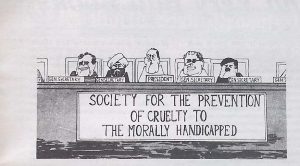
WSN Bureau CHANDIGARE: In his arguments before a bench of the Punjab and Haryana High Court consisting of Chief Justice V. Ramaswami and Justice G.R. Majithia On a writ petition challenging the Constitution (59th Amendment) Act, R.K. Garg, a senior advocate of the Supreme Court said the Act was adopted to apply the emergency provisions only to Punjab to create permanent alienation of the people of the state from the rest of the country and, thereby, pave the way for the second partition of India.
He said the people of Punjab were singled out to be the only citizens who would not have the most precious rights of life and liberty whereas the people in the rest of the country would continue to enjoy these rights even when grave emergency was declared in condition of war.
Unlike the rest of India, Garg argued the President had been authorized by the 59th Amendment to declare grave emergency on a mere threat of internal disturbance in any of the 12 districts of Punjab, No such proclamation could be issued for the rest of the country except for threat of war or armed rebellion. The powers of the President for declaring grave emergency on threat of internal disturbance were taken away by the Constitution (44th Amendment) Act in 1978. But an exception had now been made in the case of Punjab.
Simultaneously with this petition of Gurbir Singh, son of the former Chief Minister, late Gurnam Singh the High Court bench is also hearing two petitions moved by the Akali Dal (L) leaders, Capt Kanwaljit Singh and Baldev Singh Mann, challenging the dissolution of the Punjab Vidhan Sabha and proclamation of the President’s rule in the state. Besides providing for emergency in the Punjab, the 59th Amendment also extends the President’s rule in Punjab for three years.
Garg said the obnoxious consequences of destruction of Parliamentary democracy were not confined to Punjab alone under the 59th Amendment. Under Article 83 of the Constitution, such a proclamation could be used by the Government to extend the life of Parliament beyond five years until the proclamation of grave emergency expired and six months thereafter.
Quoting the noted constitutional expert, H.M. Seervai, Garg said the decision of the Supreme Court on a habeas corpus case during 1976 emergency had not been overruled and was still binding on the High Court and the Supreme Court. Even Justice Khanna, who gave a dissenting judgment in the case, could be ordered to be detained and would have no remedy in high court or Supreme Court if Article 21 was suspended. The mischief of the 59th Amendment was aggravated by Parliament authorizing the President to suspend the enforcement of Article 21 on mere threat of internal disturbance, real or imaginary, by terrorists.
Garg said the most obnoxious part of the case was that the Central Government had assumed powers directly to override the executive and legislative powers of the states. In time of emergency in Punjab, executive instructions could be issued to chief ministers of every state to carry out executive directions of the Central Government.
Article extracted from this publication >> September 22, 1989